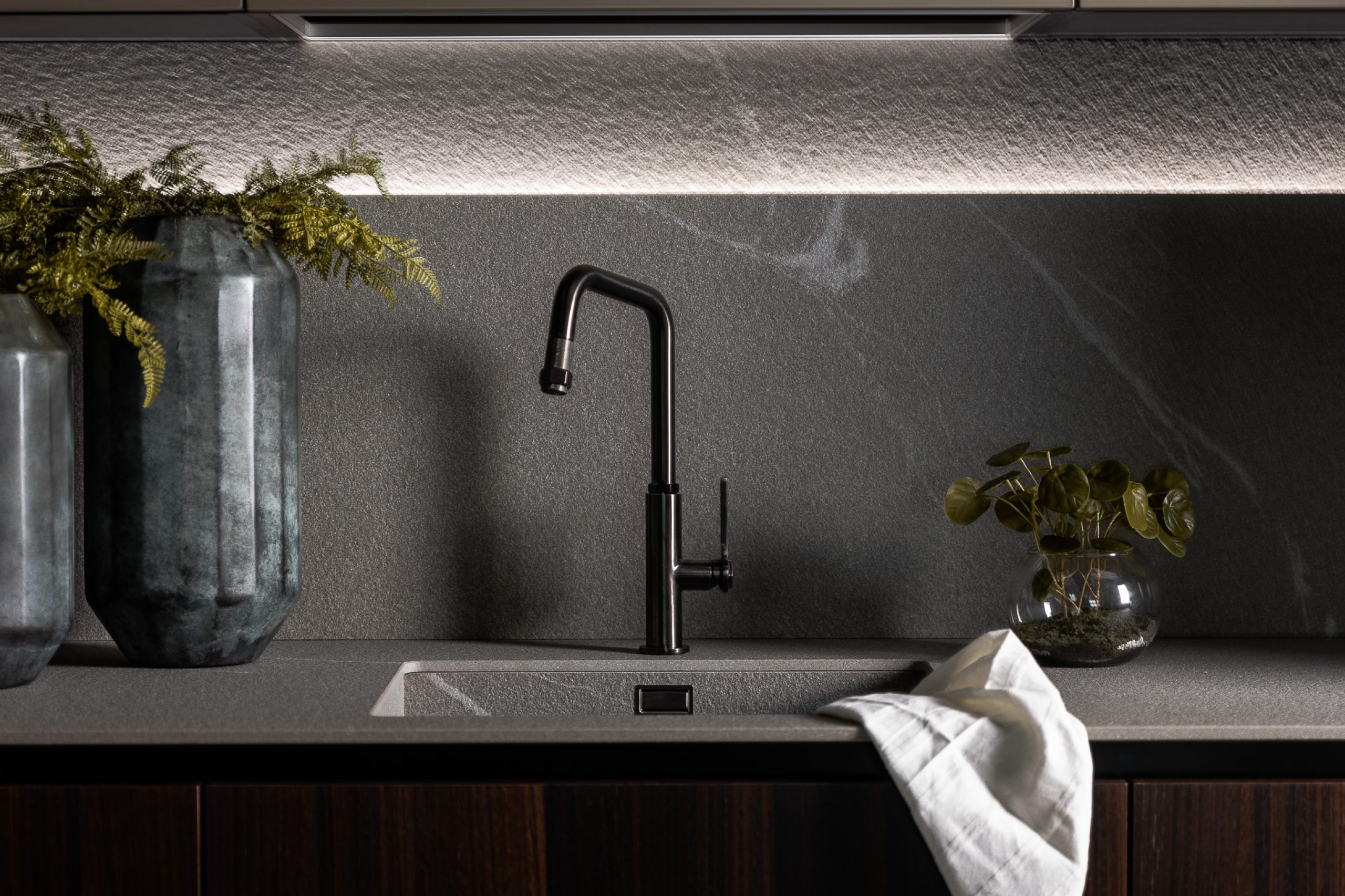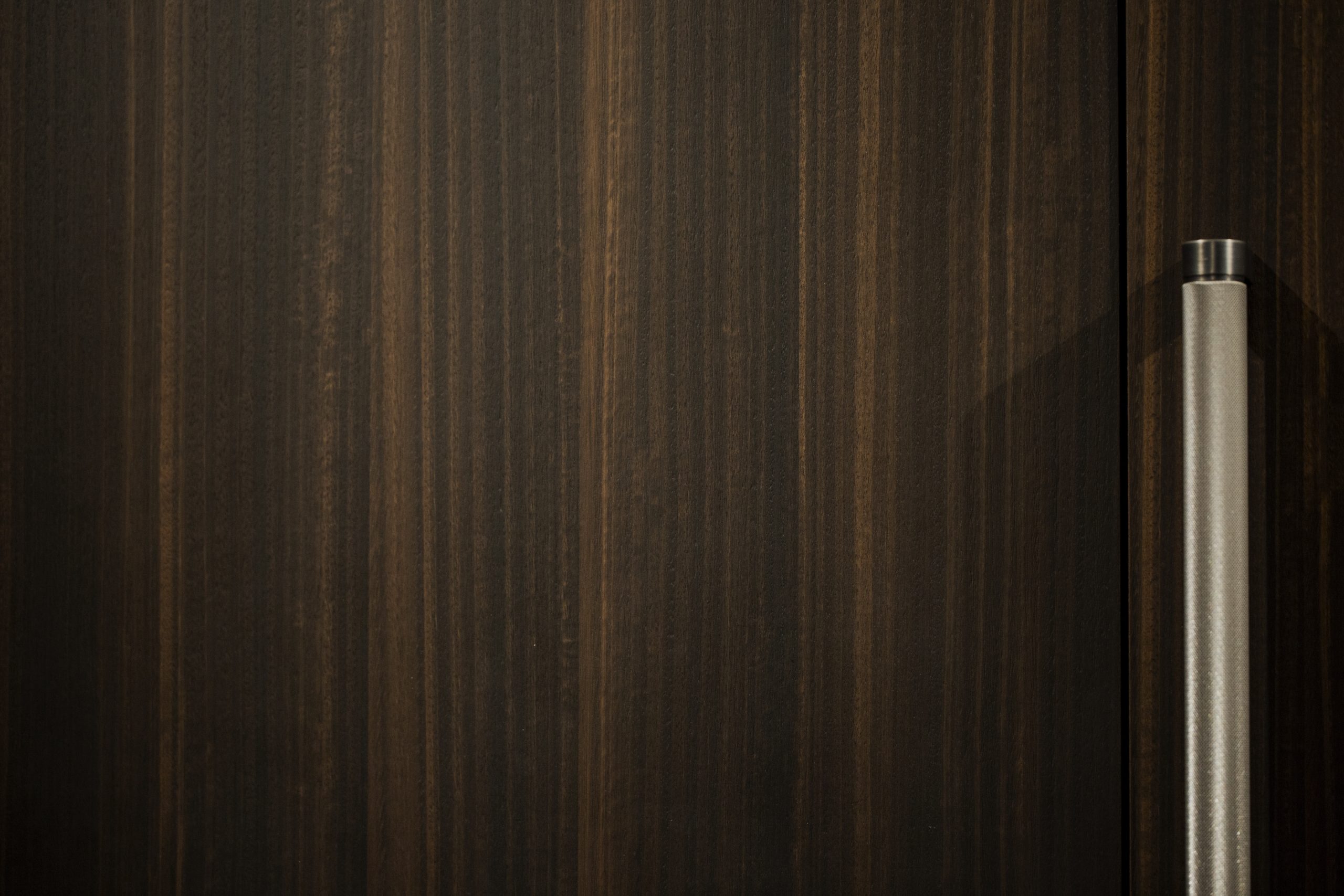July,2024
Stoneware or marble? What to choose for the kitchen countertop.

Choosing Between Stoneware and Marble for Your Kitchen Countertop: A Practical Guide
If you need to choose the right material for your kitchen countertop, you might find yourself deciding between porcelain stoneware and marble. And as we know, this is not an easy choice.
There are many options on the market for kitchen countertops, but the most popular in Italian kitchens are stoneware and marble. These two materials offer an attractive aesthetic without sacrificing durability and functionality.
Today, we want to help you choose between stoneware and marble for your kitchen countertop, and to do this, we have gathered all our knowledge and useful information in this article.
We know that the kitchen is the heart of the home, a place where the design must captivate anyone entering the room, but functionality remains a priority. The choice of countertop material is not just an aesthetic one. You need to consider the material that best suits your daily use.
Stoneware and marble are two different materials, each with its own pros and cons. Understanding their specific characteristics will save you and help you make the right choice!
Porcelain Stoneware and Marble: A Comparison of Two Materials
Porcelain stoneware has relatively recent origins compared to marble, which has a history spanning thousands of years. Porcelain stoneware was introduced in the 20th century and quickly became popular due to its resistance and versatility.
Today, porcelain stoneware is primarily produced in Italy and Spain, countries known for the quality of their tiles and ceramics.In case you didn't know, porcelain stoneware is a type of ceramic.
Many modern Italian kitchens use stoneware for their countertops. For example, a minimalist kitchen can benefit from a glossy white porcelain stoneware countertop, while a rustic kitchen might opt for wood-effect stoneware.
Marble, on the other hand, is mainly extracted in Carrara, Italy, as well as in Greece and Turkey. It is renowned worldwide for its natural beauty and unique veining. These characteristics have made it a choice material since ancient times for sculptures, temples, and various architectural works.
Marble is often used for kitchen countertops when seeking a luxurious aesthetic, with the most iconic example being a kitchen with a central island in Carrara marble. This creates an elegant and timeless spectacle.
Additionally, remember that marble veining is impossible to replicate because it forms completely randomly. This makes your kitchen countertop truly one-of-a-kind!
Advantages and Disadvantages of Porcelain Stoneware
Porcelain stoneware is a highly durable and versatile ceramic material. It is made by pressing ceramic clays at high temperatures, which gives the material remarkable hardness and strength.
We have gathered the main advantages of porcelain stoneware kitchen countertops for you:
- Resistance and Durability: Porcelain stoneware is known for its ability to withstand scratches, impacts, and abrasions. This makes it ideal for high-traffic kitchens, typical of large families or those with many pets, and for those who love to cook frequently.
- Minimal Maintenance: One of the most appreciated features of stoneware, even by professional chefs, is its ease of maintenance. To clean it, common household detergents are sufficient.
- Variety of Designs: Porcelain stoneware countertops can be made in a wide range of colors, finishes, and imitations of other materials like wood and stone. This makes them suitable for any kitchen style, from modern to more traditional.
- Waterproofing: Being a naturally non-porous material, like all porcelains, porcelain stoneware is impermeable to liquids. This means accidental spills of water, oil, or other substances will not penetrate the material and cause damage or permanent stains.
- Heat and Fire Resistance: A truly essential feature for kitchen countertops. Porcelain stoneware can withstand high temperatures, making it safe to place hot pots directly on the surface without risk of damage.
However, this would not be a fair and complete guide if, in addition to the advantages, we did not also explain the disadvantages of marble. Although, in this case, it is more about conditions to know and consider to preserve its longevity:
- Sensitivity to Severe Impacts: Despite its resistance, porcelain stoneware can chip or break if subjected to very strong impacts, repeated blows, or if heavy objects fall on the countertop.
- Difficulty of Repair: In case of damage, repairing porcelain stoneware can be complicated. Often it is necessary to replace the entire slab, which can be costly and challenging.
Advantages and Disadvantages of Marble
Marble is a natural stone that has adorned Italian kitchens, and others, for centuries. It is renowned for its beauty and unique character, thanks to the natural veining that varies from slab to slab.
Here are the main advantages of marble:
- Refined Aesthetics: Marble adds a touch of luxury and elegance to any kitchen. Its unique veining and natural shine make it a highly appreciated material throughout Italy and the rest of the world.
- Heat Resistance: Like stoneware, marble is particularly resistant to heat, making it ideal for those who cook frequently and have the habit of placing hot pots directly on the countertop.
Additionally, the great ability of a marble kitchen countertop to add value should never be underestimated. Having a marble countertop can increase the perceived value of your home, thanks to its association with premium and high-quality materials.
Just like porcelain stoneware, marble also has some drawbacks that you should be aware of if you want to preserve your marble kitchen countertop for as long as possible.
Here are the main drawbacks of marble that you should know before choosing it for your kitchen countertop:
- Porosity and Stain Sensitivity: Marble is a porous material and can easily absorb liquids and oily substances, which can often cause permanent stains. To prevent this, regular sealing and maintenance are necessary.
- Sensitivity to Acids: Marble is more delicate than it seems. It is particularly sensitive to acids, such as lemon juice, vinegar, and some cleaners. These can cause corrosion and dull stains on the surface.
- Constant Maintenance: Keeping a marble kitchen countertop in good condition requires constant care, including cleaning with specific products and periodic sealing to prevent damage and stains.
- High Cost: Marble is one of the most expensive materials for kitchen countertops. The price can vary significantly depending on the type of marble and its rarity, making this option not accessible to all budgets.
The last point might not be a flaw of marble itself, but it certainly falls into the characteristics you should consider when choosing the material for your kitchen countertop.

Is your daily life unusual?
We’ve thought of everything.
We considered that you might wonder which material is most suitable for your kitchen countertop, also considering particular characteristics of your daily life. For example, you might ask which material is better if you live in areas with high humidity.
If that’s the case, you should know that in high-humidity environments, porcelain stoneware is an excellent choice due to its impermeability. Marble, although durable, requires more care to prevent water stains.
Alternatively, you might need a durable kitchen for frequent use. Perhaps you live in a home with many people where cooking is a regular activity. Or, you simply love to cook and rarely eat out.
For kitchens where cooking is frequent and the countertop is heavily used, porcelain stoneware offers superior durability with fewer worries about scratches and stains. Marble, while resilient, requires more careful maintenance to preserve its beauty.
And what if you are looking for a solution that meets your aesthetic needs? If aesthetics are the main priority and the budget allows, marble offers unparalleled elegance that can transform the kitchen into a luxurious space. However, porcelain can provide a similar look at a lower cost, while still maintaining good durability.
Care and Maintenance Compared
When it comes to daily cleaning, there is no doubt: porcelain stoneware is definitely the best solution. For porcelain, it is sufficient to use a neutral detergent and a soft cloth for daily cleaning. Avoid using abrasive cleaners that could damage the surface.
For marble, on the other hand, you should clean it with a specific cleaner for this material and lukewarm water. And don't forget to dry it immediately to prevent water from penetrating the pores!
Then there is the issue of stain prevention. Being non-porous, porcelain stoneware is less susceptible to staining, but it is still good practice to clean up spills immediately. Marble, however, requires regular sealing. In any case, you should always make sure to dry any small spills of acidic or oily substances immediately.
Finally, the most challenging aspect of kitchen countertops, whether in marble or porcelain stoneware, is undoubtedly the repair of damage.
For porcelain, in case of damage, it is often necessary to replace the entire slab, and to do this, it is essential to consult a professional. Marble, on the other hand, can boast some less invasive or impactful techniques for repairing any damage. Small scratches and imperfections can be polished, but for more significant damage, you may still need to consult a marble restoration expert.
Choosing a Kitchen Countertop: Three Practical Tips
Now that you have all the technical information, you may have already made your decision regarding the material for your kitchen countertop. However, you might find our last three practical tips useful for making the perfect choice:
- Evaluate Your Lifestyle: If you have a large family or cook frequently, a durable and low-maintenance material like porcelain stoneware might be the best choice.
- Consider Your Budget: There’s no denying it, budget is an important factor. If budget is a significant consideration for you, porcelain stoneware offers an excellent quality-price ratio without compromising on aesthetics.
- Think About the Overall Design: If you are looking for an elegant and high-class look, marble might be the right choice, provided you are willing to invest time and money in its maintenance.
Choosing between porcelain stoneware and marble for your kitchen countertop is not easy. As you’ve seen, you must consider many different factors, including budget, lifestyle, and aesthetic preferences. Both materials offer unique advantages and have distinct pros and cons that can transform your kitchen into a functional and beautiful space. Porcelain stoneware offers durability and ease of maintenance, ideal for active families and high-traffic kitchens. Marble, with its timeless elegance, is perfect for those seeking a touch of luxury and uniqueness, as long as they are willing to dedicate time and resources to its maintenance.
Whatever your decision, make sure to consider all aspects and choose a material that not only meets your practical needs but also contributes to creating the environment you desire in your home.
And if you need further assistance, remember that you can always turn to us for practical advice and support from true industry professionals!
